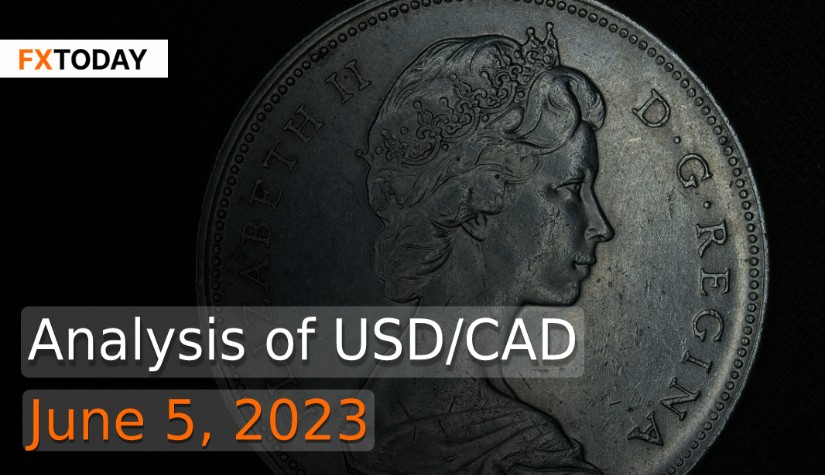Overview of the Canadian economy
Manufacturing activity in Canada slowed in May. The new orders index declined slightly in April due to high inflation, which reduces consumer purchasing power, and a reduction in inventory as a result of lower manufacturing costs, which impacts consumer demand.
However, the decline in factory purchasing activity has had a favorable impact on the supply chain. For the first time in nearly four years, lead times for goods and raw materials have improved, contributing to a reduction in supply pressure. Food and primary metal manufacturing sales in Canada are predicted to dip 0.2% in April compared to March.
Due to a tight labor market, higher material costs, and borrowing costs, Canadian housing construction activity has slowed in recent months. Meanwhile, while facing a growing housing supply shortage, housing affordability has been one of Canada's top concerns, with plans to welcome immigrants representing an estimated 1.25% of the population by 2025 expected to stimulate higher demand for housing.
After a year of decline and after the Bank of Canada (BoC) indicated a temporary suspension of strict monetary policy, the median house price in Canada increased 17% in the first quarter of this year. Additionally, a comeback in house prices is anticipated to severely erode Canada's housing affordability when coupled with historically higher interest rates.
The US dollar rose on Friday after the report of non-farm payrolls in May soared, even though the unemployment rate has risen to 3.7% from a 53-year low of 3.4% in April, including slowing income or wages, and after the Fed governor signaled that a rate hike would be postponed until the June meeting.
This week's US economic data will feature the service sector PMI, which is predicted to rise in contrast to the manufacturing PMI, which is expected to fall for the seventh consecutive month in May, as well as import and export figures and the number of initial jobless claims.
Meanwhile, the Bank of Canada may soon return to tight monetary policy during a meeting this week ahead of the upcoming Fed meeting on June 13-14. As a result, the Canadian dollar may marginally strengthen. However, the rise is projected to be limited.
Data for Technical Analysis (5H) CFD USD/CAD
Resistance : 1.3439, 1.3445, 1.3453
Support : 1.3423, 1.3417, 1.3409
5H Outlook
Source: Investing.com
Buy/Long 1 If the support at the price range 1.3418 - 1.3423 is touched, but the support at 1.3423 cannot be broken, the TP may be set around 1.3444 and the SL around 1.3414, or up to the risk appetite.
Buy/Long 2 If the resistance can be broken at the price range of 1.3439 - 1.3444, TP may be set around 1.3453 and SL around 1.3419, or up to the risk appetite.
Sell/Short 1 If the resistance at the price range 1.3439 - 1.3444 is touched, but the resistance 1.3439 cannot be broken, the TP may be set around 1.3422 and the SL around 1.3448, or up to the risk appetite.
Sell/Short 2 If the support can be broken at the price range of 1.3418 - 1.3423, TP may be set around 1.3409 and SL around 1.3443, or up to the risk appetite.
Pivot Points Jun 05, 2023 04:10AM GMT
| Name | S3 | S2 | S1 | Pivot Points | R1 | R2 | R3 |
|---|---|---|---|---|---|---|---|
| Classic | 1.3400 | 1.3409 | 1.3422 | 1.3431 | 1.3444 | 1.3453 | 1.3466 |
| Fibonacci | 1.3409 | 1.3417 | 1.3423 | 1.3431 | 1.3439 | 1.3445 | 1.3453 |
| Camarilla | 1.3429 | 1.3431 | 1.3433 | 1.3431 | 1.3437 | 1.3439 | 1.3441 |
| Woodie's | 1.3402 | 1.3410 | 1.3424 | 1.3432 | 1.3446 | 1.3454 | 1.3468 |
| DeMark's | - | - | 1.3427 | 1.3433 | 1.3449 | - | - |
Sources: Investing 1, Investing 2
Maximize your knowledge: Blog
















